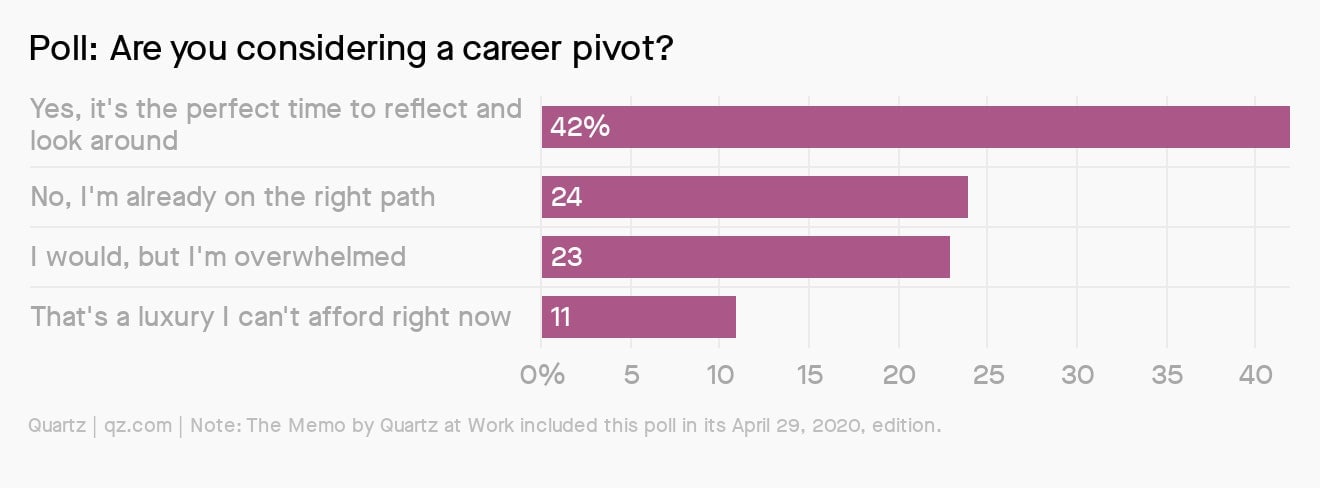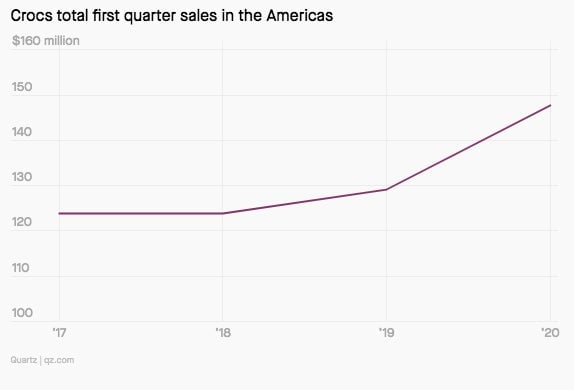The Memo from Quartz at Work: Meeting matters
To modern workers everywhere,

To modern workers everywhere,
Why are video calls—even the good ones—so draining after a while? Gianpiero Petriglieri, a management professor at Insead, shared an interesting theory about that a few weeks ago. “It’s the plausible deniability of each other’s absence,” he wrote on Twitter. “Our minds [get] tricked into the idea of being together when our bodies feel we’re not. Dissonance is exhausting.”
In person, we are constantly processing context. On video, we are “a weird kind of blindfolded,” Petriglieri observes. “We sense too little and can’t imagine enough.” There are other drawbacks: the self-consciousness of being on camera (mirror meditation is one fix for that), the distraction of constantly seeing yourself on screen (there’s a fix for that, too), and the lack of connection and cues we normally get when we shake hands or trade business cards or take in the views from a high-floor boardroom before sitting down together.
Entrepreneur Steve Blank, whose book Four Steps to the Epiphany was a precursor to the Lean Startup movement, sees a clear opportunity for the next generation of video-conferencing tools. “There are already startups offering emotion detection and analytics software that measure speech patterns and facial cues to infer feelings and attention levels,” he recently blogged. “Currently none of these tools are integrated into broadly used video conferencing apps.”
Will more context cure our Zoom fatigue? There’s likely a ripe market for innovators who want to find out.—Heather Landy
+ Yes, it’s another video call, but this one you won’t want to miss. Join us for a Quartz at Work (from home) workshop on the art of the remote meeting, on Thursday, May 7, from 11am-noon US Eastern time. The live event is free; the recording will be available to Quartz members.
Five things we learned this week
Remote work is a huge opportunity for high-impact climate policy.
The conglomerate headed by India’s richest person is cutting salaries.
The last global recession completely changed what university students majored in.
J Crew is selling pinstriped cotton masks in banker blue. (It also filed for bankruptcy.)
Office happy hour is officially over in South Korea.
30-second case study
During the last global recession, Quartz at Work senior reporter Sarah Todd sheltered in place at graduate school, avoiding a challenging labor market while furthering her education. At 25, it seemed like a sensible thing to do. She left her media job for a master’s in English literature with an eye toward a doctorate and a future in academia.
It didn’t pan out as planned—not the PhD, the career switch, or even the hope of reentering into a healthier job market. “Academia may have sheltered me from the turmoil of the job market from 2008-2011, but it was a leaky, windy shelter,” Sarah writes. “The recession had technically ended in June 2009, but the labor market remained in rough shape for a long time.”
The takeaway: Graduate school can be expensive, and its ties to poor mental health are well documented. That doesn’t mean you shouldn’t do it, Sarah notes. “But if you’re thinking of grad school more as a way to weather a bad economic period—or because you’re not sure what else to do—you may just be swapping out one set of problems for another.”
It’s a fact
Social intelligence has as big an impact on group performance as IQ. In a new working paper issued by the National Bureau of Economic Research, a pair of Harvard researchers found that emotionally perceptive types are the secret weapon that help teams outpunch their weight.
Inbox
Whether you’re newly remote or have been away from an office for years, we’re curious about what you miss and how you’re coping without it. Is it the camaraderie? The coffee? The kombucha on tap? The office supplies? The on-site fitness center? Drop us an email and let us know: ✉️ Which perk of the office do you miss most?
+ Last week we asked about career pivots—it seems many are mulling one.

Words of wisdom
“My role as a mom has never compromised my ability or judgement at work. This I know. But I didn’t necessarily trust others to understand that. … [It] was really a false dichotomy—because the fact is I’ve been doing both roles quite seriously and simultaneously for eight years now. —Joyce Kim, chief digital and marketing officer, Arm Ltd.
+ Read Joyce’s full article about how she learned to integrate her work and home life during lockdown, and how it was a male CEO who inspired her to do it.
Special to Quartz members
In last week’s Quartz at Work (from home) live workshop, a trio of presenters offered some big-picture ideas and more tactical advice for building a career in quarantine. Quartz members have access to the detailed recap and full replay, and can view and even download the slides from Quartz talent lab editor Holly Ojalvo’s presentation on polishing resumes and cover letters. Readers of The Memo are eligible for 40% off the first-year Quartz membership price of $99 by using the code QZFLASHSALE. Sign up for membership here.
ICYMI
Long before the coronavirus, Uncharted CEO Banks Benitez was leading his social-impact accelerator through its own period of crisis. He emerged from the experience with some hard-won lessons in communication and decision-making in times of tumult, which any leader would find relevant today.
Workplace fashion forecaster
Will we ever wear dress shoes again?

You got The Memo!
Our best wishes for a productive and creative day. Please send any workplace news, comments, doctorates, or Crocs to [email protected]. Get the most out of Quartz by downloading our app and becoming a member. This week’s edition of The Memo was produced by Heather Landy and Holly Ojalvo.